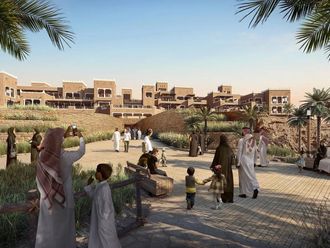
Riyadh: Saudi Arabia celebrates the 80th anniversary of its National Day on Thursday at a time King Abdullah Bin Abdul Aziz is leading a series of political, economic, administrative and legislative reforms.
King Abdullah's reforms centre on the fields of human rights, women and press freedom — and have received positive coverage in the reports of international organisations.
Contrary to the situation in many third world countries, the relationship between the citizen and the rulers in the Kingdom has been characterised by stability.
The Saudi government has continued its endeavour to achieve prosperity for its people and has succeeded in dealing with the complex security issues caused by Al Qaida.
Successful model
So successful has been the fight against Al Qaida over the last few years that several countries, including the United States, Britain and other Western nations have copied the Saudi experiment in an effort to fight terrorism.
The Saudi model espouses rehabilitation programmes led by second deputy premier and Minister of Interior Prince Nayef Bin Abdul Aziz and his son Prince Mohammad.
Political, economic, judicial, educational and social reforms have all focused on man as the primary target.
In the domain of "openness," Abdullah launched his initiative for national dialogue based on Sharia values. In the political arena, the Kingdom was able to preserve its pattern of moderation, balance, wisdom and far-sightedness to serve Islam and Muslims.
The Kingdom has also established its relations with all nations on the basis of mutual respect and non-interference.
At an international level, King Abdullah launched his inter-faith initiative to achieve peaceful dialogue among all religions.
Many of the government establishments were restructured and new blood was infused in religious institutions, the Shura council and regional councils.












